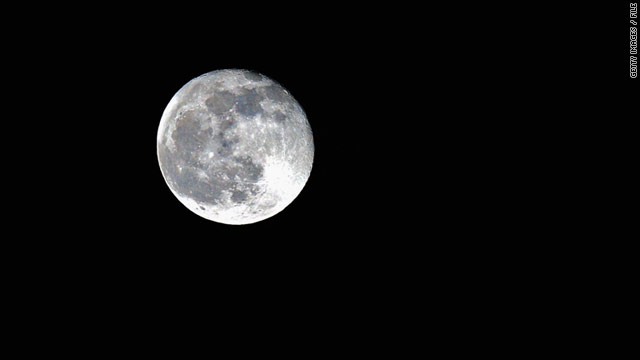American calls for Bahrain’s government to negotiate with protesters fell on deaf ears Thursday after the arrest of seven movement leaders in early-morning raids left it unclear who could speak for the opposition.The leaders — some of whom had for weeks dominated a stage set up in Pearl Square, which protesters had occupied until security forces cleared it Wednesday — are now behind bars. The stage was leveled Thursday along with much else, even the palm trees. And the vastly outgunned opposition appeared to have few viable options as evening curfews continued to quiet the capital.
It was not immediately clear why he resigned nor why hospitals had been ordered closed. Neither the Health Ministry nor the Interior Ministry responded to requests for explanation, but residents of the surrounding Shiite villages had an idea.
The government “wants to prove there is nothing here in Bahrain,” that there is no crackdown, said Badriya, who asked that her last name not be used, out of concern for her safety. She visited Jidhafs Maternity Center on Thursday, searching for her nephew and his friend, both of whom had been missing since Wednesday.
The gates to Naim Hospital were chained shut Thursday morning, and the maternity center was empty, with no doctors, few office workers and dozens of empty beds in the main entrance halls.
Workers said the Health Ministry ordered the facilities closed Wednesday afternoon and that many patients were transported by car to private homes. The most seriously wounded were taken to other hospitals. A security guard said most of the wounded were suffering from tear gas inhalation, that others — including one teen who arrived Thursday seeking treatment — were speckled with shotgun wounds, and that a few had more serious gunshot wounds.
At the private International Hospital of Bahrain, workers Thursday pointed out a window with a basketball-size hole in it that they said had been shot out Wednesday morning by police, and a metal sign over the main emergency-ward entrance bore markings of a shotgun blast. Hospital workers said about 40 white police cars had lined up on the street in front of the hospital Wednesday morning. They pointed to broken glass in their driveway next to blood drops, where they said police had shot at one person in a car as he brought a wounded patient to the hospital.
A neurosurgeon at the hospital said they had treated about 50 people on Wednesday, mostly for tear gas inhalation, and that all had gone home. Two patients remained at the hospital Thursday, undergoing surgery from eye wounds from shotgun blasts.
At a mosque in Sanabis, a Shiite village west of Manama, people who turned out Wednesday to tend to 50 wounded people in the mosque’s worship hall asked Thursday why the U.S. government had not done more to stop the crackdown.
“They can tell the Saudis to get out from Bahrain,” said Mansoor, a retired civil servant who gave only his first name, because he feared for his safety. “We are blaming the U.S. . . . Why aren’t they stopping this?”
Among those arrested, according to their political societies, were Ibrahim Sharif, who leads the leftist Waad political society, a secular group of mostly Sunni members, and Hassan Mushaima, head of the Haq movement, who had called for an end to the al-Khalifa monarchy.
Also Thursday, Iranian state media reported that President Mahmoud Ahmadinejad recalled Iran’s ambassador to Bahrain, a day after Bahrain recalled its ambassador.
“The future is dark,” said Matar Ebrahim Ali Matar, a member of the main opposition political society al-Wefaq who said he did not know what would become of the protest movements. He said he was not aware of any communication between opposition groups and the government since thousands of troops from Saudi Arabia and other Persian Gulf states arrived Monday.
The government said those who were arrested were members of a “sedition ring” who had “intelligence contacts with foreign countries,” according to a statement from Bahrain’s military that was carried by the Bahrain state news agency. They “incited . . . the killing of citizens,” the statement said.
Al-Wefaq leader Sheikh Ali Salman, who was not arrested in the raids, called Thursday for Saudi troops to leave Bahrain and asked for an independent international investigation into this week’s events.
There were small scattered protests Thursday across the country, some of which were dispersed by police using tear gas and rubber bullets, witnesses said.
Meanwhile, the country’s health minister resigned, and at least two small government hospitals in Shiite areas were closed despite a need for medical care.It was not immediately clear why he resigned nor why hospitals had been ordered closed. Neither the Health Ministry nor the Interior Ministry responded to requests for explanation, but residents of the surrounding Shiite villages had an idea.
The government “wants to prove there is nothing here in Bahrain,” that there is no crackdown, said Badriya, who asked that her last name not be used, out of concern for her safety. She visited Jidhafs Maternity Center on Thursday, searching for her nephew and his friend, both of whom had been missing since Wednesday.
The gates to Naim Hospital were chained shut Thursday morning, and the maternity center was empty, with no doctors, few office workers and dozens of empty beds in the main entrance halls.
Workers said the Health Ministry ordered the facilities closed Wednesday afternoon and that many patients were transported by car to private homes. The most seriously wounded were taken to other hospitals. A security guard said most of the wounded were suffering from tear gas inhalation, that others — including one teen who arrived Thursday seeking treatment — were speckled with shotgun wounds, and that a few had more serious gunshot wounds.
At the private International Hospital of Bahrain, workers Thursday pointed out a window with a basketball-size hole in it that they said had been shot out Wednesday morning by police, and a metal sign over the main emergency-ward entrance bore markings of a shotgun blast. Hospital workers said about 40 white police cars had lined up on the street in front of the hospital Wednesday morning. They pointed to broken glass in their driveway next to blood drops, where they said police had shot at one person in a car as he brought a wounded patient to the hospital.
A neurosurgeon at the hospital said they had treated about 50 people on Wednesday, mostly for tear gas inhalation, and that all had gone home. Two patients remained at the hospital Thursday, undergoing surgery from eye wounds from shotgun blasts.
At a mosque in Sanabis, a Shiite village west of Manama, people who turned out Wednesday to tend to 50 wounded people in the mosque’s worship hall asked Thursday why the U.S. government had not done more to stop the crackdown.
“They can tell the Saudis to get out from Bahrain,” said Mansoor, a retired civil servant who gave only his first name, because he feared for his safety. “We are blaming the U.S. . . . Why aren’t they stopping this?”
Among those arrested, according to their political societies, were Ibrahim Sharif, who leads the leftist Waad political society, a secular group of mostly Sunni members, and Hassan Mushaima, head of the Haq movement, who had called for an end to the al-Khalifa monarchy.
Also Thursday, Iranian state media reported that President Mahmoud Ahmadinejad recalled Iran’s ambassador to Bahrain, a day after Bahrain recalled its ambassador.









